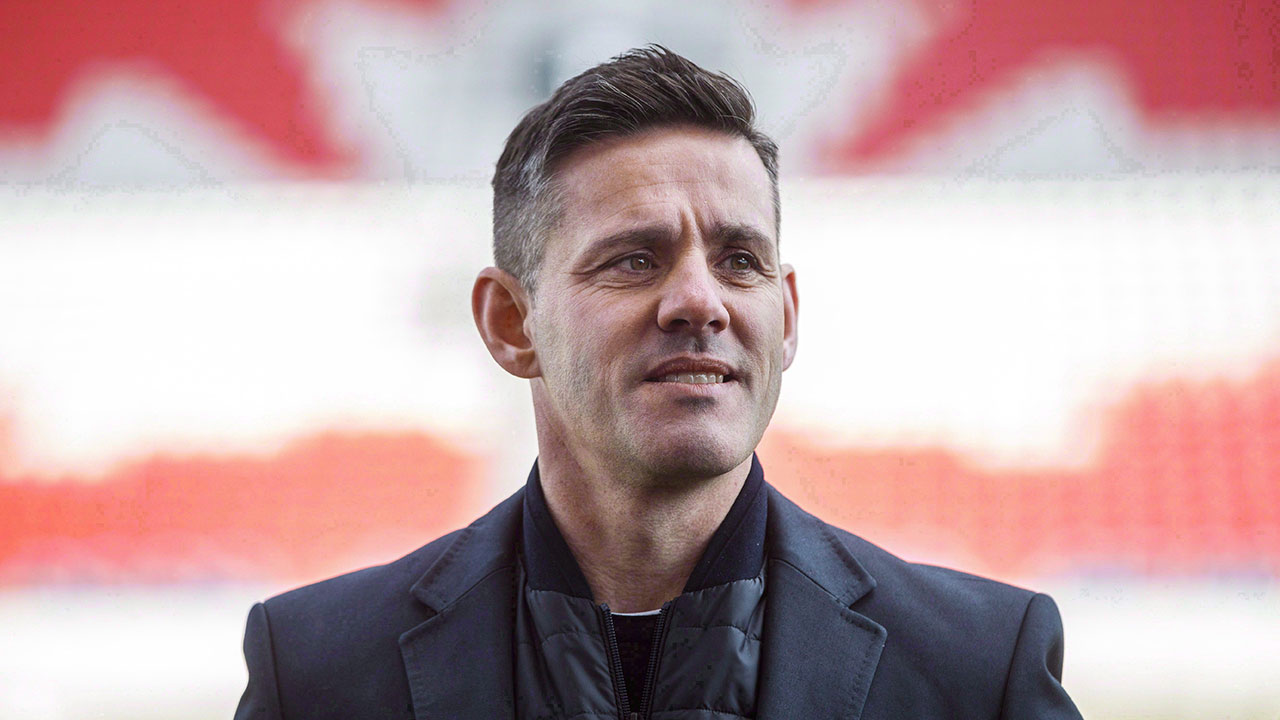
TORONTO — In one of the most famous scenes from the epic 1972 film “The Godfather,” Las Vegas bigwig Moe Greene flies into an incredulous rage when young New York-based mafia boss Michael Corleone offers to buy out his interests in one of the city’s top casinos.
“The Corleone family wants to buy me out? No, I buy you out. You don’t buy me out,” replied Greene, who was astounded that someone would even have the temerity to make him such an offer.
On Monday, Canada Soccer announced that John Herdman was stepping down as coach of the Canadian men’s team in order to assume the same role with Toronto FC of MLS starting on Oct. 1. Herdman’s resignation came while he had roughly three years left on his contract, and his early departure means he won’t be in charge when Canada co-hosts the 2026 FIFA World Cup with the United States and Mexico.
This was Canada Soccer’s “Moe Greene” moment with Herdman playing the role of Corleone. You can almost picture Canada Soccer’s officials sitting across the table from Herdman, telling him, “You want to leave? With a World Cup less than three years away? No, we quit you. You don’t quit us.”
Really, you can understand where they’re coming from because who in their right mind would throw away a chance to coach at a home World Cup? Who gives that up? Most coaches would kill for the opportunity that Canada Soccer presented to Herdman.
But the fact that Herdman took a pass should tell you all you need to know about the current state of affairs at Canada Soccer. He walked away from coaching at the biggest sporting event on the planet, when the eyes of the entire soccer world would be on him, because the prospect of having to deal with Canada Soccer was just too much for him to bear.
Canada Soccer is a federation in turmoil, engulfed by nasty labour disputes with both its men’s and women’s programs that have been going on for years and don’t appear to be ending anytime soon.
The women briefly went on strike in February when Canada Soccer cut their resources ahead of this summer’s World Cup, and only went back to work under threat of litigation from their own governing body. The following month, shortly after embattled former Canada Soccer president Nick Bontis resigned, members of the Canadian women’s team testified before the Standing Committee on Canadian Heritage in Ottawa. Iconic captain Christine Sinclair didn’t hold back as she ruthlessly took Canada Soccer to task for fostering a “culture of secrecy and obstruction” in its labour negotiations with the women’s team over the years.
“As the popularity, interest and growth of the women’s game has swept the globe, our most painstaking battle has been with our own federation and trying to obtain fair and equitable treatment in the way we are supported and the way we are paid,” Sinclair told the MPs.
The men similarly went on strike more than a year ago over World Cup compensation and that led to the cancellation of a game in Vancouver, which left egg all over Canada Soccer’s face and did even more damage to its tattered reputation.
Both teams are currently operating without a collective bargaining agreement in place. The players have long felt disrespected by the sport’s governing body, and there’s such bad blood and mistrust involved that it’ll probably take a miracle on par with the loaves and the fishes to repair the relationship. But that’s only half of the problem.
Canada Soccer finds itself in a major cash crunch at the moment, as it doesn’t have enough revenue coming in, despite the women’s team’s status as the reigning Olympic champions and a dynamic men’s team led by superstar Alphonso Davies. A controversial, long-term deal with Canadian Soccer Business is just one of many reasons why the federation is in a financial pinch. CSB oversees the marketing and broadcasting rights for both national teams in exchange for an annual guaranteed payment to Canada Soccer as part of a pact that the players argue is bleeding money from the federation.
Without enough revenue swelling their coffers, Canada Soccer has had to cut back on expenses, including not scheduling any exhibition games for the men’s team during next month’s international window, much to the public chagrin of Davies and his cohorts. Herdman also voiced his displeasure over the lack of resources following Canada’s 2-0 loss to the U.S. in the CONCACAF Nations League final in June.
“We’ve got to figure this out financially. We’ve got to get serious about winning a World Cup. When you play at home, you get a chance to win it. You get a chance to get to a semifinal, a quarterfinal, semifinal, and then get on the road to win it. And we’re not serious. We’ve brought a World Cup to our country and we’re not serious about winning it,” Herdman boldly proclaimed.
That Herdman decided to call it quits after a 12-year association with Canada Soccer, after guiding the men’s side to its first World Cup appearance since 1986 and after winning back-to-back Olympic bronze medals with the women’s team, is major black eye for the organization.
But what makes it even more humiliating for Canada Soccer is the fact Herdman hasn’t jilted the federation for another national team that will compete at the 2026 World Cup.
Instead, Herdman has spurned Canada Soccer in favour of taking over a last-place MLS club that is winless in 13 games and has lost 10 in a row (both franchise records). Toronto FC has become a laughing stock even though it has the league’s highest payroll and is on the verge of failing to qualify for the playoffs for a third straight year.
Herdman is an ambitious guy, and his move away from international soccer into the club game was inevitable.
But his resignation as the most successful national team coach in this country’s history in order to take over a floundering MLS franchise is yet another staggering indictment of Canada Soccer, its governance of the sport and the financial quagmire it finds itself stuck in.
John Molinaro is one of the leading soccer journalists in Canada, having covered the game for over 20 years for several media outlets, including Sportsnet, CBC Sports and Sun Media. He is currently the editor-in-chief of TFC Republic, a website dedicated to in-depth coverage of Toronto FC and Canadian soccer. TFC Republic can be found here.






